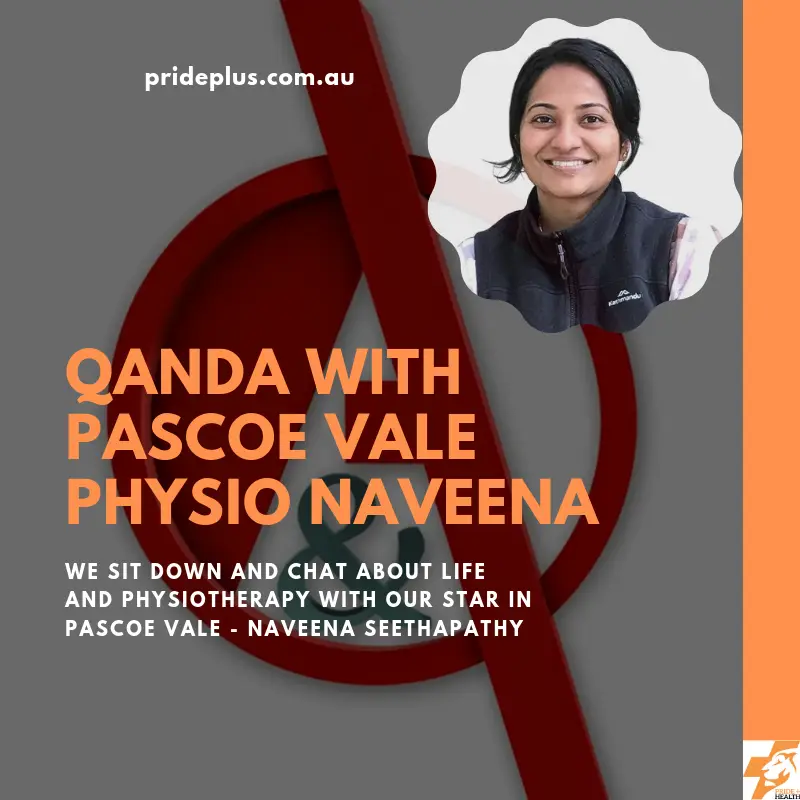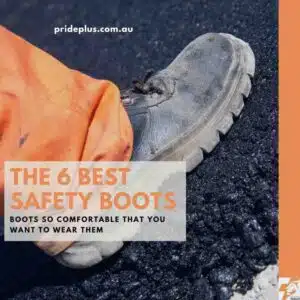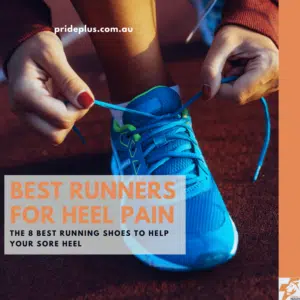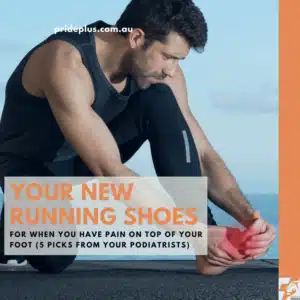Q and A with our Physio Naveena Seethapathy
So Naveena, a question that physios often get asked, why Physiotherapy?
I’ll answer that with some more questions. Think about this, why do we seek help for our aches and pains? The most common answer is to reduce pain and improve function.
So the next question. Who do we seek help from? This is where the answers stray from the common to the rare. It might be a physio, it might be a GP, it might be a podiatrist… Often it’s a friend, sometimes it’s a tablet, sometimes we do not seek help at all.
I became a physio because I wanted to help people, help people in pain be it acute once off or chronic. I wanted to be involved in all aspects of someone’s journey from pain and loss, to find themselves with power, confidence and living their best lives. For me, that could only mean physiotherapy.
That’s deep, so how does this philosophy translate to a physio consultation?
Here is where our knowledge and beliefs come into play. There’s often this idea that something is mechanically wrong and needs to ‘fixed’ with medication or surgery, and this idea is compelling, isn’t it?
But is it correct?…
It seems prudent to learn more about our injury or disease and the available treatment options. To get to know how you can tackle it yourself and invest your time in targeted treatment that not only helps you with pain relief but also improve function and even prevent it from happening again.
Doing appropriate physio exercises results in a faster return to work, less healthcare costs, less side-effects and a big boost to your general health.
Physiotherapy EMPOWERS you and puts you in the driver’s seat to take charge of your own health.
How does your personal academic, family and sporting history influence your physiotherapy practice?
I have been lucky to work in 3 different countries (India, Australia and the United States) as a physio and there are a few things that I have realised are universal
- Most people prioritise good health over anything else and being able to do things they want without any aches and pains
- The human body has an amazing innate ability to heal itself; it is counterproductive to think we can ‘fix it’. The best way to facilitate healing is to listen to your body and challenge ourselves in just the right ways
- Clients seek my help for reasons that are very important to them at that point in their lives. It is very rewarding to see them undergo the transformation from pain ridden and unable to do what they want to the best they can be
- I’m committed to constantly learn and get better at what I do. I’ve completed my Master’s in Musculoskeletal and Sports Physiotherapy and being a member of the Musculoskeletal Group of the APA (Australian Physiotherapy Association) keeps me updated with the latest research and evidence-based practice
At PridePlus Health in Pascoe Vale, we see many of our valued clients from diverse population groups, with many different problems. How do you personalise your service?
Let’s say you have done your research and walked in through the door to see me. The foremost step in personalisation is listening to your story (the story part of hiSTORY!). You are unique and so is your story. I listen as it gives me big clues to your problem including to your expectations of the treatment session and goals you want to achieve.
This will be followed by a thorough assessment of the skeletal, muscular, articular and nervous system to figure out what’s going on. Investigations like x-rays and scans are only tools to confirm or differentiate what we know already from our clinical examination so more often than not are not required to start treatment.
Physiotherapists are highly skilled in the diagnosis of musculoskeletal conditions but we are also trained in looking out for non-musculoskeletal conditions that could be masquerading as something else. Rest assured we arrange appropriate referrals if required (I’m very proud of my letter writing!).
Once we have a list of physical impairments and functional limitations we will work out a step by step management plan that is specific and tailor-made for you. It might be some manual therapy, dry needling, taping to help with pain relief and targeted exercise therapy to sustain the progress. Also, prevention strategies and education to build tolerance and resilience in our bodies systems.
We only have to pick up the newspapers, scroll through Instagram or Facebook and see that almost daily our favourite sports stars suffer injuries limiting their play. Is there anything that we can do as sub-elite and weekend warrior level sportswomen and men to help reduce our own injury risks?
- If you have a niggle that is bothering you, sort it out! Not only does this reduce injury risk but also improves your game
- Pre-season assessments. Check for flexibility, strength issues and get a tailored program for yourself
- Use training sessions wisely. Training should cater to the playing techniques/drills, as well as strength and conditioning, flexibility, balance and proprioception
- Adequate hydration, sleep (you heal in your deep sleep), nutrition
- Proper gear, including proper footwear, will leave that targeted advice to you podiatry experts
- Training load. Increase gradually, you want to keep track of what are you doing and then gradually increase. Some of us have to be careful to not get carried away and overtrain leading to injury
- Warm up!
And at the risk of alienating the majority of our audience, favourite team(s)?
We don’t currently have a consensus at home, the husband follows the Pittsburgh Steelers, sons are into the Richmond Tigers, whereas I love to root for the underdogs in any sport!
And now for a free bit of physio advice please Naveena. I plan on running another half marathon shortly and I know it’s going to be tough. I’ve got my own ideas but would love to hear your thoughts. What are the top 3 things I need to be doing to reduce my injury risk and help me recover?
- Past running injuries are predictive. Re-injuries rates are really high within the first 3 months after incomplete healing from a previous injury, so get thoroughly assessed and treated by a physio. If you have any niggles see a PT now and stay on top of it
- Vary the runs. Long and short, fast and slow. Interval and just distance. Listen to your body and give it what it wants!
- Cross training. Strength is vital for running fast, running long and running safely.
Thanks Naveena, finally, for all those out there who need some high-value physiotherapy care in Pascoe Vale, how would they book in for an assessment with you? Where are you located?
We are located within PVH Medical, 124 Kent Rd Pascoe Vale. It’s easy to book an appointment over the phone 9304 0500 or book online here.




